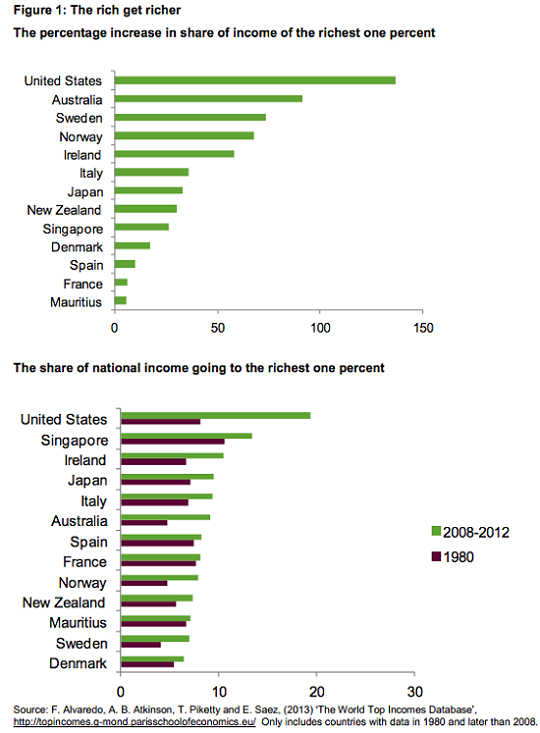If we don't challenge these poisonous polarizing binaries, they may well trigger the accidental suicide of our polity.
If there is any statement about politics in America that qualifies as as a truism accepted by virtually everyone, left, right or independent, it's that America is a deeply divided nation. But is this really true?
Like everyone else, I too accepted that the line between Hillary supporters and detractors, and Trump supporters and detractors, was about as "either/or" as real life gets.
Maybe the real driver of this division is divisive language--more specifically, language that is designed to drive a wedge between us. In other words, maybe the divisions are an intentional consequence of the language we're using.
Kulikowski makes a number of nuanced arguments in his talk, but his primary point is that the late-stage Roman Empire collapsed partly as an unintended consequence of rhetorical binaries, polarizing rhetoric that lumped an extremely diverse Imperial populace into false binaries: Roman or Barbarian, Christian or heretic, and so on.
The actual lived reality was completely different from these artificial either-or binary classifications. As Kulikowski explains (and anyone who has read a modern history of late-stage Rome will know this from other accounts), many "Roman generals" were "Barbarian" by birth, and the boundary between "Roman citizen" and "Barbarian" was porous on purpose.
Rome had prospered by ensuring the boundary was porous (not counting slaves, of course). An impoverished young man from the hinterlands could join the Roman military and achieve a stable income and Roman citizenship. (Women could advance through marrying into a Roman-citizen family--even one that was "Barbarian" until recently.)
By Imperial decree in the 3rd Century A.D., any free person inside the boundaries of Imperial Rome was declared a Roman citizen. So numerous people of a variety of ethnicities may have been born outside the boundaries (i.e. Barbarian) became as "Roman" as any native born Roman in terms of their obligations to pay taxes and rights to judicial review.
This social/economic upward mobility was a key "secret sauce" of Rome's enduring success.
So why the sudden fatal attraction to completely false polarizing binaries?Kulikowski makes the case that deploying these rhetorical devices--polarizing binaries-- served the political purposes of warring elites within the Imperial aristocracy.
For example, one sure-fire way to undermine a political challenger was to label him as a "Barbarian." Even though he might have served in the Roman army from his youth, his political opponent could transform him into a "bad guy" by virtue of his being born a non-Roman. Sound familiar? (Hint: try "deplorable".)
There is a self-destructive, self-reinforcing dynamic in this polarizing rhetoric:though it served the political interests of individual members of the elite, it did so at the cost of the entire polity, which was poisoned by these false binaries that then developed into dominant narratives.
Hence Kulikowski's startling conclusion: Rome didn't "die of natural causes"--it accidentally committed suicide once its political elites embracing polarizing binaries as political weapons. These weapons seemed targeted to their users, but the rhetorical narratives spread like a deadly virus through the empire, helping to trigger collapse of the Imperial core.
The story repeats the truism of America being a divided nation, but my take-away was not the either-or binaries accepted by the mainstream and alternative media alike-- my take-away was a newfound appreciation for the incredible diversity in America, not just ethnically, but geographically, demographically, and in every other measure of complex diversity.
How could a nation of such astounding diversity be artificially cleaved into polarizing binaries? The short answer is that it cannot: the polarizing binaries are artificial rhetorical devices, completely out of touch with the nuanced, complex reality of a diverse populace with widely diverse opinions on a wide spectrum of political topics.
My conclusion is that we should be alert to the great distance between these politically useful but systemically poisonous polarizing binaries and the complex and dynamic realities of the American populace.
We would also benefit from recognizing the artificiality and self-serving nature of these polarizing binaries, and be alert to the false and destructive narratives and teleologies they generate.
We've already witnessed the toxic weeds of polarizing binaries spreading across the political landscape, choking out real-world narratives: diverse populations are being demonized as "deplorables," "racists," "evil," and so on. So many of our choices are false choices based on polarizing binaries. For example-- how many voters would have championed an alternative to Hillary or Trump? If given a choice, would 60% of the voters have chosen someone other than the two party candidates? (Hint: Bernie Sanders is the most popular politico in America, according to recent polls.)
Identity politics is another rhetorical device designed to consolidate diverse populaces into politically useful (to the elites jockeying for power) binary blocks: you're either "for us" (and good) or "against everything good" (bad, evil, racist, etc.)
If we don't challenge these poisonous polarizing binaries, they may well trigger the accidental suicide of our polity. The saying is the demographics is destiny; the same can be said of the language we use to divide or unite people of good faith who are sick of the parasitic, predatory elites that are plundering the nation.
This essay was drawn from Musings Report 12. The weekly Musings Reports are emailed exclusively to major contributors/ subscribers /patrons ($5/month or $50/year).
If you found value in this content, please join me in seeking solutions by becoming a $1/month patron of my work via patreon.com.
NOTE: Contributions/subscriptions are acknowledged in the order received. Your name and email remain confidential and will not be given to any other individual, company or agency.
Thank you, Blaise S. ($5), for your superbly generous contribution to this site -- I am greatly honored by your support and readership.
| |
Thank you, Keith B. ($50), for your outrageously generous contribution to this site -- I am greatly honored by your steadfast support and readership.
|




























